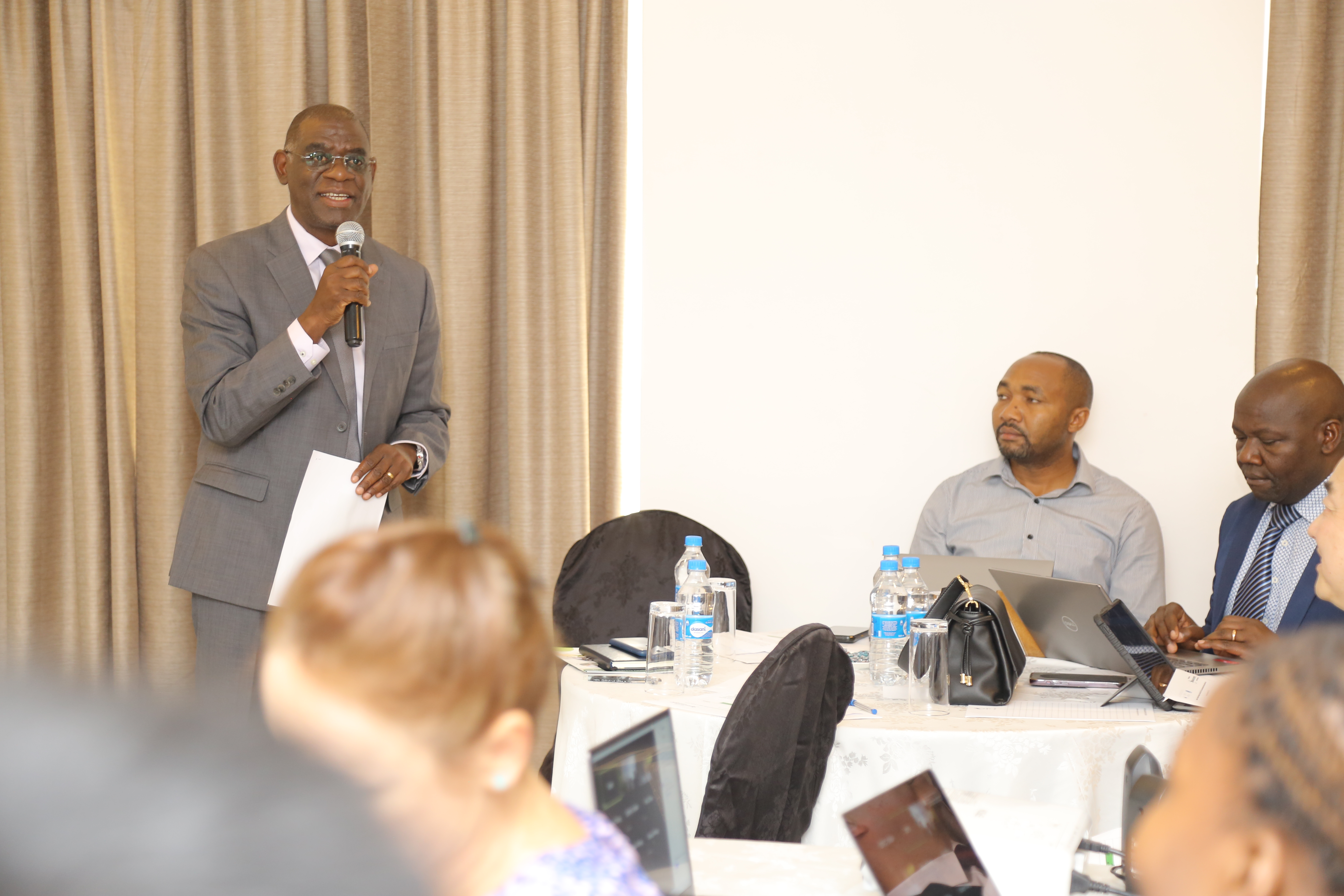
MEETING: Ifakara, partners evaluate China-TZ malaria project achievements 2 years on

Today, Ifakara Health Institute and partners from China, Tanzania and UK held a Coordination Management Committee (CMC) meeting in Dar es Salaam to evaluate the already completed China-Tanzania malaria control project which ended in 2021.
The project, which lasted six years. was a collaborative program and part of the China-UK-Tanzania initiative that was jointly implemented by the National Institute for Parasitic Diseases (NIPD), Ifakara Health Institute and other partners. The project was implemented in three districts – Kibiti, Rufiji and Kilwa, from 2015 until 2021.
Key guests at the meeting were Dr. Catherine Joachim, Head of Programs, MoHCDGEC Tanzania; Ms.Xiaoqi Wang, Direcotor at China Center for Disease Control and Prevention; Dr. Fujie Xu, Deputy Diretor at BMGF Beijing office; Mrs. Viviane Hasselmann, Head of Health at Swiss Embassy; and Mr. Peng Suo from the Chinese Embassy in Tanzania.
In their remarks, as supporters of the China-Tanzania project, they all reaffirmed their commitment to continue offering support to the Tanzania government in the fight to eliminate malaria in the country.
Addressing the participants, Ifakara's Chief Executive Director, Dr. Honorati Masanja who moderated the opening session of the meeting, gave a word of thanks to the government, funders and partners for supporting the China-Tanzania project for their continued committment that contributed to the success of the project from when it started till its completion.
Dr. Masanja also assured them the recommendation contributed during the meeting pertaining the project results whoce aim was to eliminate malaria in Tanzania would be considered and implemented effectively in the future.
During the meeting, teams from the three countries reviewed the results, achievements and challenges faced during implementation of the China-Taznzania project.
Ifakara researcher involved in the project, Dr. Yerom Mlacha, gave a presentation summary of both phase I and phase II of the project whose aimed to explore the feasibility of deploying the WHO-T3 (Test, Treat, Trck) strategy while borrowing Chinese experience in deploying a malaria control and elimination program in moderate-high transmission settings.
Dr. Mlacha rounded off his presentation highlighting the project's success saying, "The study offers the first attempt at establishing an appropriate surveillance-response model in driving the malaria elimination agenda and indeed, the 1,7-mRCRT demonstrated as a potential tool for reducing the malaria burden in moderate-high transmission settings."
In another session, representatives Dr. Kitau Jovin from the World Health Organization (WHO) Tanzania Office and Dr. Maru Aregawi from WHO Global Malaria Programme presented reports on Monitoring and Evaluation and the project external evaluation respectively.
Earlier this week on Tuesday, March 14, the WHO team convened in Rufiji to conduct an external evaluation of the project. The team was hosted by District Medical Officers (DMOs) and Malaria focal persons from Kibiti and Rufiji.
Finally, Dr. Samwel Lazaro, Programmer Manager at the Tanzania NMCP, presented a scaling-up propoasl for the project. In his report, he urged those involved in the China-Tanzania project to sustain the gains reliazed in the study sites of Rufiji, Kibiti and Kilwa. Dr. Lazaro also recommended continued support in malaria services.
Other partners present at the meeting included partners from Harvard School of Public Health, Global Fund, US President's Malaria Initiative (PMI), WHO Africa Regional Offices and National Institute of Parasitic Diseases (NIPD).
